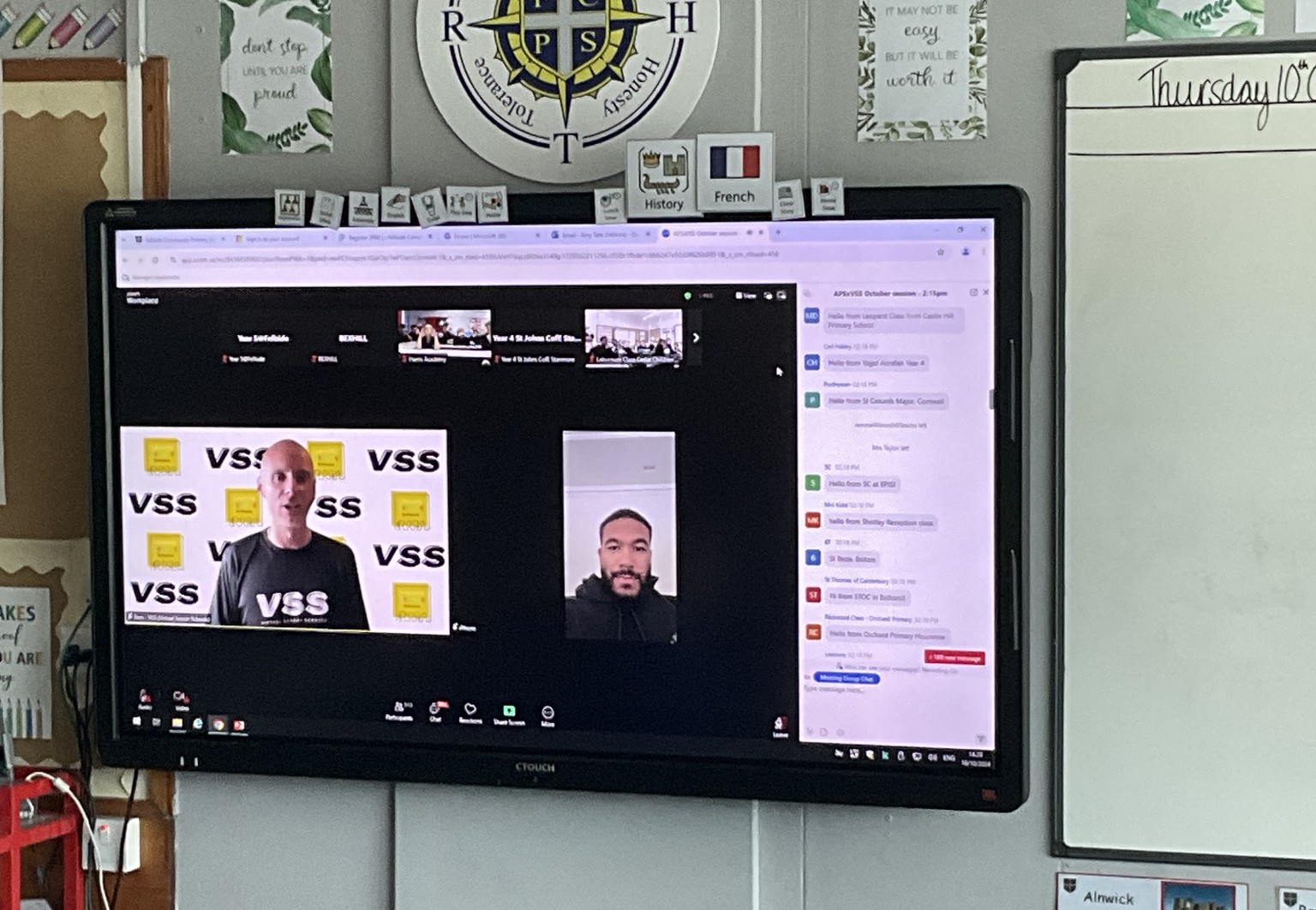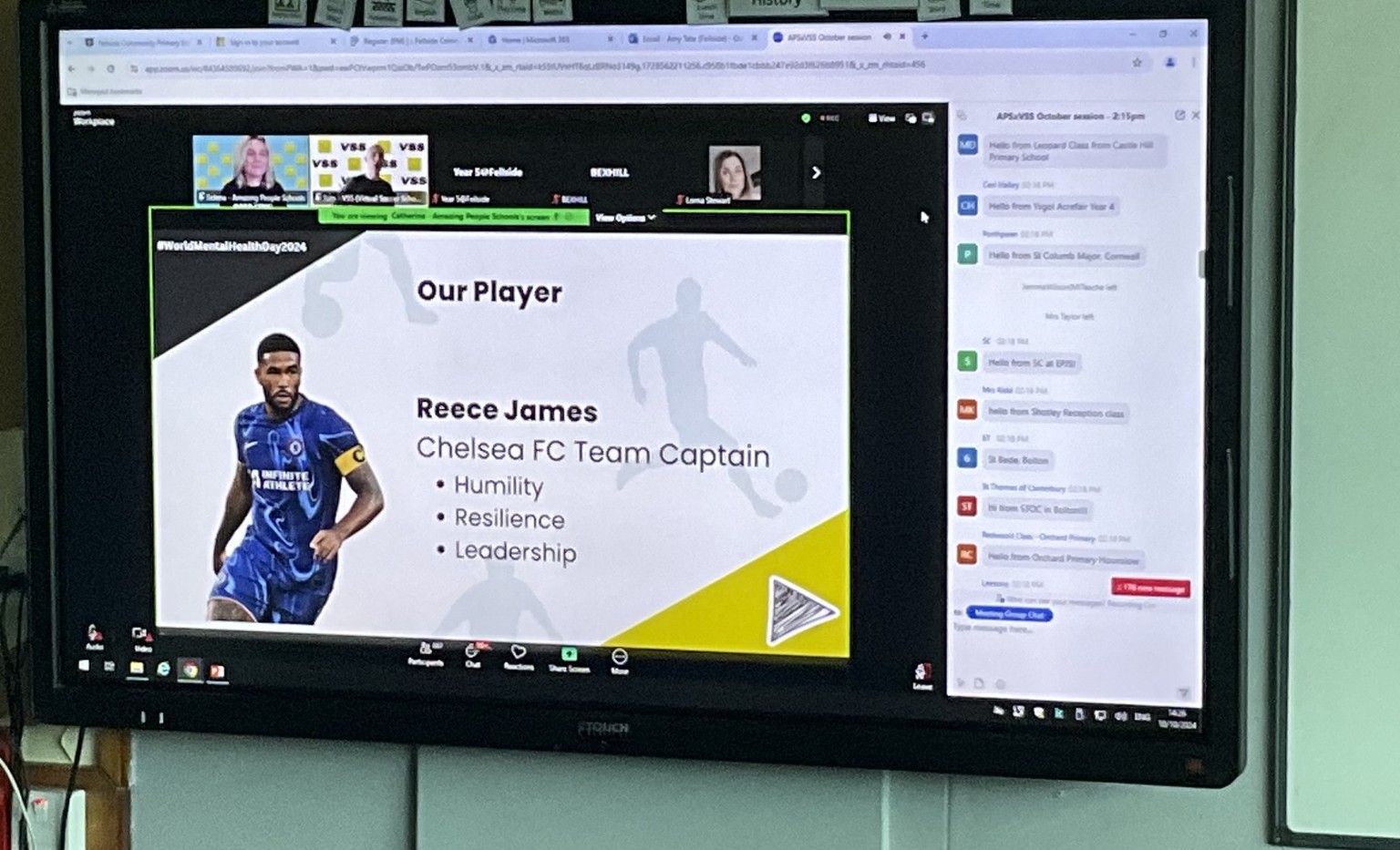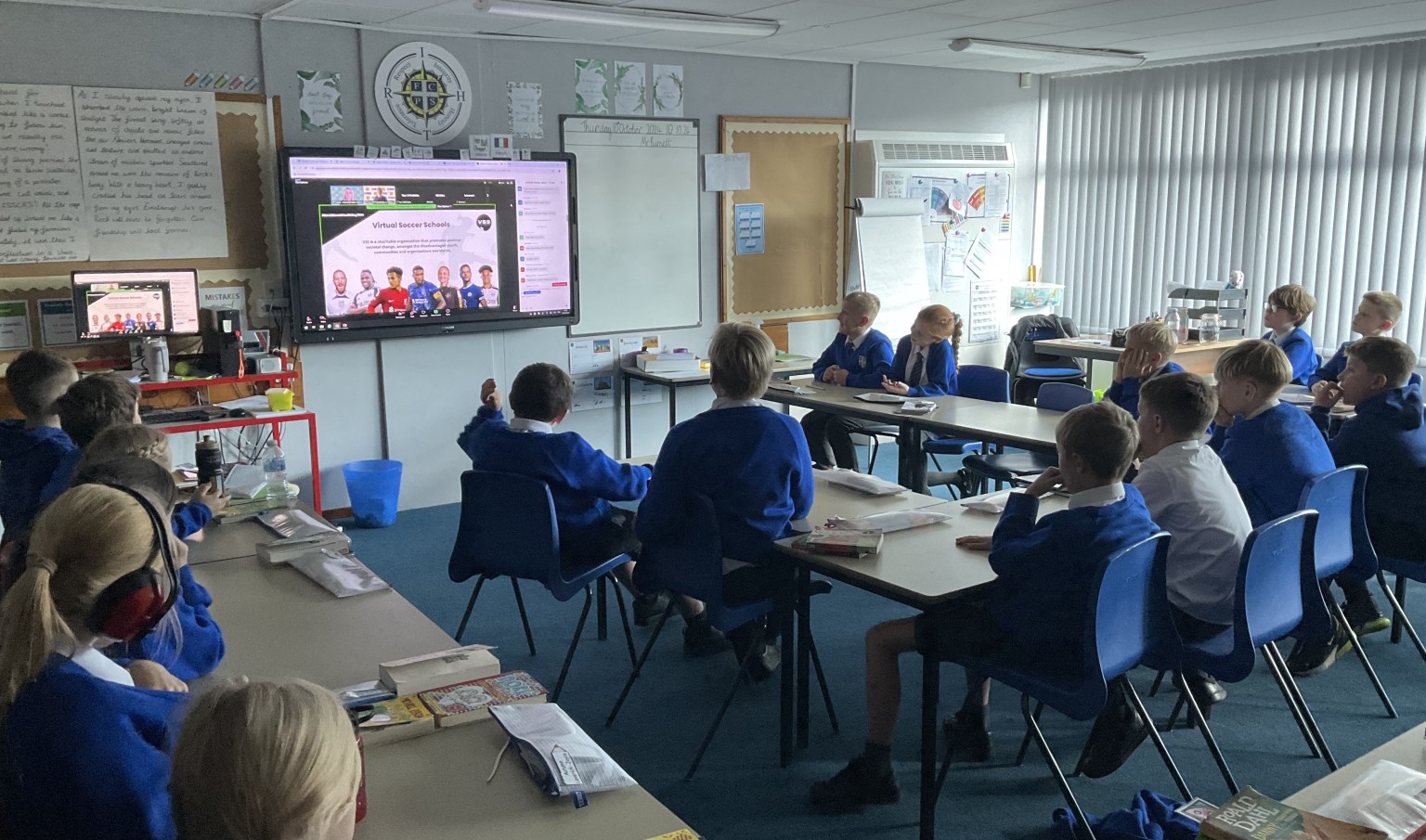At Fellside Community Primary School, we understand that the mental health and wellbeing of our pupils is just as important as the academic side of what we do.
Senior Mental Health Lead
Mrs Green is our Senior Mental Health Leader, who has passed her SMHL qualification with funding from the Department for Education. As part of her role, she ensures that there is a whole school approach to supporting the mental health of our children and staff. She is also a Drawing and Talking therapist.
How do we support our children?
As part of our daily provision, we:
- make sure that all children are greeted with a smile and a welcome by a familiar adult every single day;
- use calming corners in classrooms when needed;
- provide fidget aids for children who need them in order to regulate;
- have Regulation monsters (EYFS and KS1) or Regulation Boxes (KS2) available to subtly let adults know how children are feeling, if needed;
- use Zones of Regulation to discuss feelings.
In the event that a child needs something extra, we provide the following:
- Drop-in / Check ins with Mrs Tate
- Specific, targeted, Zones of Regulation sessions with Mrs Tate
- Specific, targeted, Friends Resilience sessions with Mrs Clark
- Specific, targeted, Life Skills sessions with Mrs Tate
- Specific, targeted, Drawing and Talking sessions with Mrs Green
- Sensory / regulation sessions with different staff members, as appropriate
Social Emotional and Mental Health Provision Plan
Zones of Regulation
As a school, we use “Zones of Regulation”; this is an approach which supports us to recognise our feelings and use strategies to regulate them, when necessary.
Zones of Regulation:
- helps children to understand the link between their emotions and their behaviours;
- helps children to understand the link between the emotions and behaviours of their peers;
- creates a common language for us to use to describe our emotions and behaviour, this developing emotional literacy skills;
- gives children strategies to know how to manage when their behaviours can impact on their relationships and their learning;
- supports children to learn how to self-regulate.
Children learn that emotions can be grouped into four simple colour categories and that we all experience feelings in each of the zones. We discuss that, when we are in the green zone, we are more able to learn. By equipping our children with a common language across the school, we are able to provide everyone with the skills they need to problem solve when things feel tough.
Our children learn that there will be times when they are in the blue, yellow or red zones and they will be reassured that this is OK – we all feel like this sometimes. Emotions are not ‘fixed’ and that we experience different emotions throughout a day. It is also important to note that emotions can sometimes be helpful (e.g. a yellow feeling of nerves ahead of a sports competition can prepare our bodies for a challenge).
There may be some children who show, through their behaviour, that they need further support to recognise and regulate their emotions. If we feel that they would benefit from Zones of Regulation workshops, led weekly by Mrs Tate, we will contact you and discuss this.
Calming Corners
Our classrooms have calming corners which suppport our children's wellbeing. The following document provides inrmatoin regarding the research undertaken and the provision we offer.
Calming Corners
School Events
World Mental Health Day - Thursday 10th October, 2024
Year Five took part in the "Amazing People and Virtual Soccer Schools" live zoom Quention & Answer session with Chelsea Captain and England player, Reece James.
Together, with 882 other schools, they discussed how character strengths such as resilience, positivity and humility can support our mental health. Reece James talked about the injuries, setbacks and challenges he has faced and how he overcame them. His message to all the children was to try to be the best version of yourself, follow your dreams and believe in yourself.
Year Five then had a very mature, sensible discussion where they shared their own ideas to overcome challenges and strategies to get into the green zone.
Year Five with Reece James (World Mental Health Day, 2024)
External Support
If you feel that your child is strugling with their mental health, there is a lot of support to access.
NHS: Every Mind Matters
https://www.nhs.uk/every-mind-matters/supporting-others/childrens-mental-health/
Young Minds
Guide to getting support from mental health services | YoungMinds
NSPCC
Child mental health: recognising and responding to issues | NSPCC Learning
Place 2 Be
How to support your child's mental health – Place2Be



